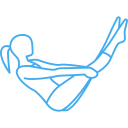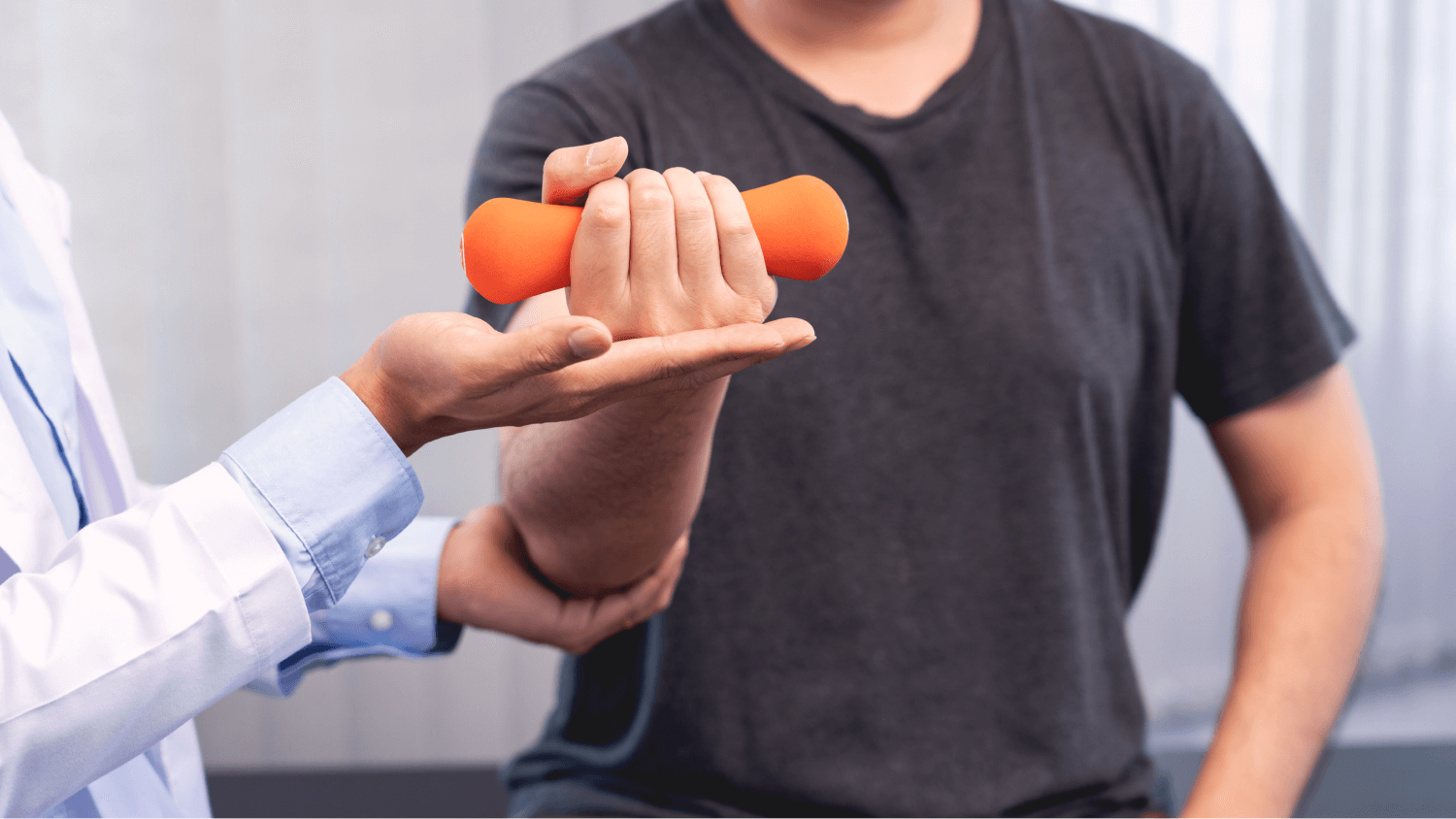Here is a list of the common injuries and conditions we treat. We are adding content for each injury over time and you can see our blog page for information on how we treat other conditions. Feel free to reach out if you have any questions, prior to booking your assessment.
- Running – Biomechanical faults and Pain
- Achilles Strains and Ruptures
- Ankle Sprain rehabilitation
- Plantar Fasciitis and Foot Strengthening
- Hip Pain
- Lower Back Pain
- Neck Pain
- Whiplash
- Nerves Injuries – Sciatica
- Nerve Injuries – Pinched Nerves
- Shoulder – instability- dislocation
- Shoulder – Rotator Cuff Tears
- Elbow -Tennis Elbow
- Thumb – De-Quervains

We treat a variety of elbow injuries at Pilates4Physio. These can include overuse injuries or sports injuries. We also treat post-surgical injuries and fractures of the elbow.
It is important to diagnose what type of injury you have, so you receive the right treatment. For example, a fracture will include injury to the bone, but it may also include muscle, joint, and/or nerve injuries.

Injuries at the elbow can be classified in the following groups:
- Fractures
- Post-Surgical
- Tennis Elbow
- Golfers Elbow
- Joint Sprains
- Nerve Injuries
Fractures
There are a variety of different fractures that can occur at the elbow.
Depending on the type of fracture, your orthopaedic specialist at the fracture clinic will limit the amount of movement so that healing of the bone takes place. Once they have given you the all-clear to start your rehabilitation, we can help you regain movement. Once further healing of the bone has occurred, you can start strengthening.
It is important to restore full elbow movement as soon as possible after a fracture. At Pilates4Physio, we use manual therapy and Pilates equipment to do this. The equipment is also ideal for graduated resistance training to develop your strength and endurance.
With some fractures, there are secondary injuries. It is important to assess these early so that your rehabilitation includes treatment for primary and secondary injuries.
Post Surgical
When there is a severe fracture or dislocation at the elbow, you will likely require surgery. After a period of rest, your surgeon will recommend early mobilization of the elbow joint. It is important to start the movement as soon as you are allowed. You want to avoid chronic stiffness from setting in, as joints can sometimes become very stiff if they are not mobilized at the right time.
At Pilates4Physio, we use manual therapy and Pilates-based exercise to restore joint movement. The Pilates equipment supports the elbow while allowing safe movement.
The spring resistance is ideal for strengthening when you are ready. We also use elastic exercise bands and free weights to strengthen the elbow.
Tennis Elbow
This is an overuse injury to the common extensor tendon at the elbow. It is called tennis elbow as it is common with tennis players. However, we also see the injury with computer use and many repetitive activities. Other terms used for this injury are tendinopathy, tendinitis and repetitive strain. The diagnosis is made using specific clinical tests, in your assessment, that localizes the pain at the elbow at the extensor tendon.
There are other injuries that can produce similar symptoms as tennis elbow. Some nerve injuries need to be ruled out, for instance, before starting the treatment. Common symptoms include pain, burning, and aching at the lateral elbow. It is usually worse with gripping, carrying anything heavy, or repetitive activities with the hand.
In your assessment, we diagnose whether this is a true tennis elbow injury or if you have a nerve or joint problem. We also determine why and how this injury occurred by looking at your activities. Some activities may have some mechanical faults. Other times, we see muscle imbalances that cause overuse of the elbow extensor muscles.
Treatment must focus on the cause, not just symptoms. Muscle imbalances can be improved using the pilates equipment. Home exercises can be simple and include exercise bands. The extensor muscles will also need to be strengthened, so that they can withstand repetitive activities. We also look at your mechanics and ergonomics to ensure these are not causing the tennis elbow.
At Pilates4Physio, we use soft tissue techniques, athletic/kinesio tape, joint and nerve mobilizations, and strength training to treat tennis elbow. The classic Pilates equipment is ideal for graduated strengthening.
Golfers Elbow
This is a similar type of injury to tennis elbow, except the overloaded tendon is on the inside of the elbow. Pain is located at the common tendon of the forearm flexors. It is usually caused by repetitive wrist flexion and pronation of the forearm. The tendon starts to break down, as it is overloaded.
Physiotherapy treatment involves looking at the cause and the mechanics that are causing the overload. The muscle-tendon needs to be strengthened without flaring it. Simple muscle contractions will help the tendon to regenerate. Massage and joint manipulation also help in the acute and sub-acute stage to reduce pain.
Elbow Joint Sprains
The elbow joint is just like other joints in the body and can be strained. The joint capsule and ligaments can be strained from a sudden movement or traumatic injury.
Once a fracture has been ruled out, you can commence gradual movement to make sure the elbow does not become stiff. Tape and elbow sleeves may be useful to protect the joint while allowing full movement. It is important not to immobilize the elbow, even in the acute phase. Gradual rehabilitation involves range of motion and then strengthening. The Pilates equipment is ideal for progressive resistance and range of motion.
Nerve Injuries
All the above injuries may also involve the nerves in the elbow. In your assessment, we use clinical tests to determine whether a nerve is irritated or injured. The severity of your symptoms will indicate the degree of nerve involvement. Some common symptoms can include burning, numbness, and/or tingling. There may be weakness and/or a loss of sensation as well. Sometimes the nerve is aggravated where there is hypersensitivity, also, which we see more in chronic injuries. More serious nerve injuries may require referral to a neurologist.
If you have an elbow injury and have questions, do not hesitate to contact us at info@pilates4physio.ca or call 647 499 6685. Book your appointment with us today!
